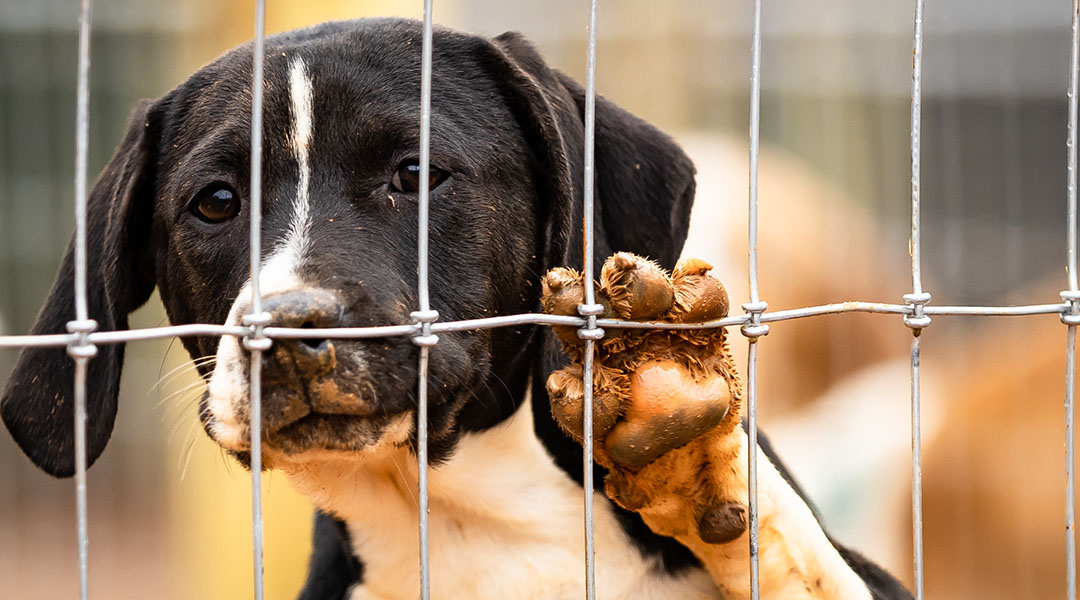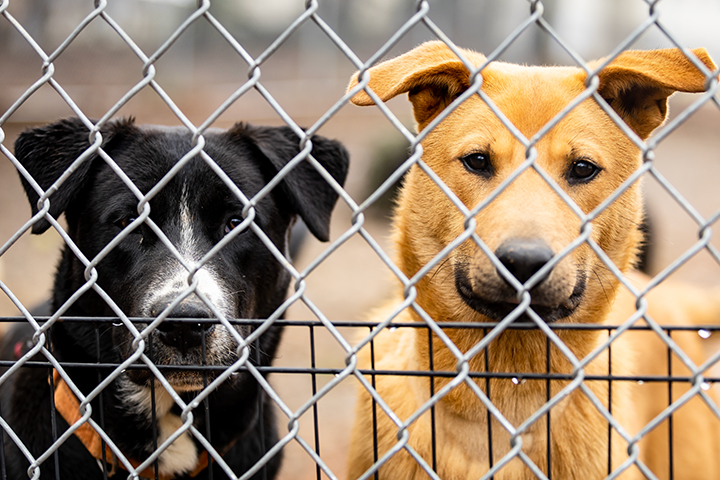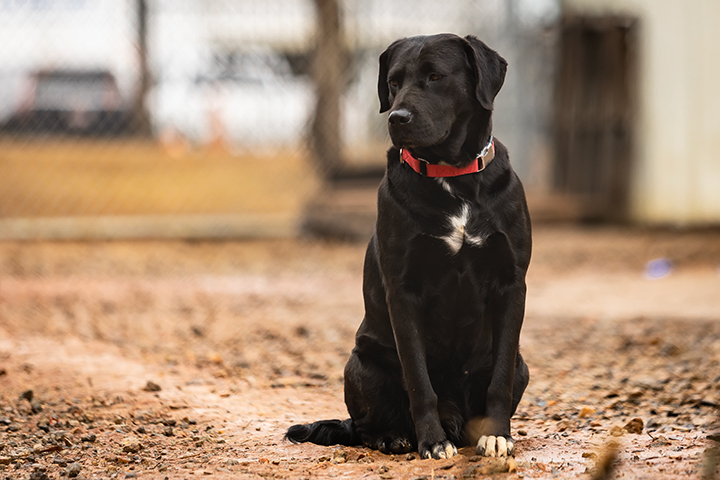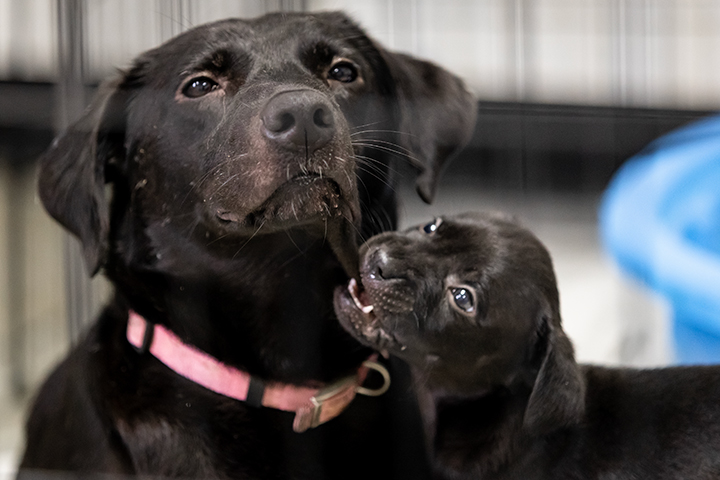An adoptable dog looks through the fence at the Final Victory Animal Rescue shelter. (Photos by Caroline Barry)
The idea of a long car ride to the Northeastern states from South Carolina sounds daunting for many.
For hundreds of South Carolina shelter dogs, that journey is the first step toward their forever homes.
Final Victory Animal Rescue’s transport program is the beginning of a second chance at life for many in the state’s enormous dog population. The trek starts at the West Columbia shelter and ends in destinations throughout the northeastern United States.
“We don’t stop except for breaks,” Turbo Tails owner Dione Sackman said.
The Midlands’ Turbo Tails is one of the transport companies that drives the dogs for more than 10 hours overnight, with plenty of breaks for walks.
At the end of the voyage, the dogs are met by their new owners and taken to new homes.
Final Victory Animal Rescue owner Katy Cowan has worked with and transported rescue animals for years and has been at the forefront of the effort to get dogs off the street in South Carolina.
“A couple of weeks ago, I went to an organization in South Carolina called the No Kill South Carolina, and they had a symposium thing with a bunch of other shelters and animal controls and, you know, just people from big organizations,” Cowan said. “And I got up and told them about what we’re doing, and some of the shelters were like, ‘Oh my god, how come we didn’t know about this?’ And I said, ‘Listen, I’m happy to share my secret in any way.’”
Cowan, with the help of volunteers and staffers, is able to ensure that the dogs she transports are healthy and going to suitable homes.
Shelters began using virtual tools when COVID began to help dogs meet potential owners. This transition lent itself well to the transport system and meeting hopeful adopters, according to Final Victory General Manager Michael Sniezek.
“We do a virtual FaceTime, Zoom, Facebook, whatever, meet and greet where they can meet the dog, ask questions about it,” Sniezek said. “I talk to them, basically run down how everything works. And then they think about it for the rest of the evening, to make sure that it’s a good fit. And then they say, OK, perfect.”
When the animal rescue decides they have found a good fit, new owners are put into contact with one of Final Victory’s transport companies, including Turbo Tails.
Sackman makes the journey to the Northeast at least once per week and is charged with making sure the animals are cared for throughout the trip.
“I just love being part of the groups,” Sackman said. “There’s transporters. There’s rescuers. There’s local transporters. There’s the donors. There’s the fosters. There’s just so many links, and I’m just so grateful to be just one of those links to help these babies get to great homes.”
Families in Maine, Massachusetts and New Hampshire are among those who have been able to adopt Final Victory Animal Rescue dogs. What starts as coming across a photo of a dog online can turn into companionship for life because of everyone’s hard work.
For many, the East Coast pipeline is an unfamiliar concept.
“I found Frankie before I knew about the transport program,” said Daisy Chiu, an adopter from Massachusetts. “I fell in love with her through Petfinder. FVAR (Final Victory Animal Rescue) walked me through the process. And I did some more research during the adoption process, where I learned that transport programs (nationally and internationally) are common.”
Chiu was not alone in her discovery.
Adopters who used the transport service were impressed and said their dogs arrived clean and healthy despite making a 1,000-mile trip the night before. Many of the families said the overall experience was easy.
Cowan said the reward comes in the form of the dogs finding their happily ever after.
“What we live by is that good people deserve good dogs as soon as possible,” she said. “And let’s not make it complicated. Let’s make it easy. Let’s do it fast and do it well, but do it fast.”






